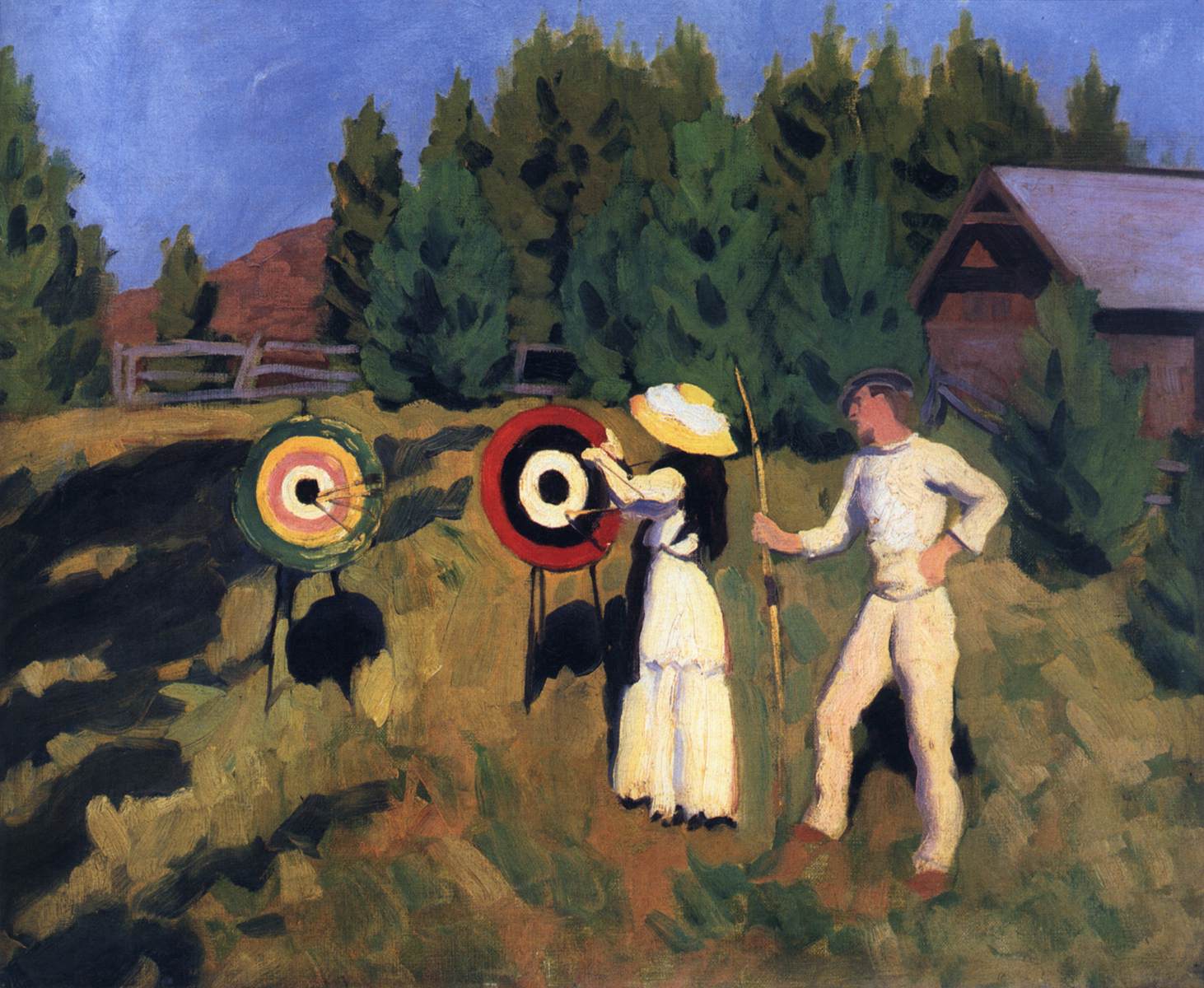Description
The painting "Archers" by the Hungarian artist Károly Ferenczy is a masterpiece that combines the impressionist technique with elements of Hungarian folk art. The work, which measures 64 x 78 cm, represents two Hungarian archers in full archery action.
The artistic style of the painting is impressionist, which can be seen in the technique of loose brushstrokes and the mixture of colors. However, Ferenczy also incorporates elements of Hungarian folk art, such as the archers' clothing and the rural landscape in the background.
The composition of the work is very interesting, as Ferenczy manages to create a feeling of movement and dynamism through the position of the archers and the direction of their gazes. In addition, the contrast between the warm colors of the archers and the green and blue background creates a sense of depth and perspective.
When it comes to color, Ferenczy uses a palette of bright, warm tones that reflect sunlight. The red and yellow colors of the archers' clothing contrast with the green of the landscape and the blue sky, creating a very attractive visual harmony.
The history of the painting is interesting, as Ferenczy was an important representative of the Hungarian art movement known as the "New Society of Artists". This movement sought to bring back Hungarian traditions and popular culture in art, and "Archers" is an example of how Ferenczy managed to combine folk elements with impressionist technique.
Regarding little-known aspects, it is known that Ferenczy made a trip to Paris in 1906, where he had contact with the French Impressionists and was inspired by their technique. However, it is also possible that he had contact with the Hungarian "New Aesthetics" movement, which promoted a fusion between popular art and modern art.
In conclusion, the painting "Archers" by Károly Ferenczy is a masterpiece that combines the impressionist technique with elements of Hungarian folk art, creating a dynamic and harmonious composition. Its history and its artistic style make it a work of great cultural and historical value.

